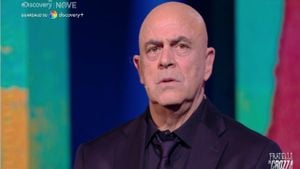The upcoming Ontario Provincial Election 2025 is shaping up to be increasingly complex as candidates across various ridings vie for support amid shifting voter sentiment and pressing socio-political issues. With the election now just weeks away, parties are mobilizing their strategies, presenting their platforms, and, at times, finding themselves entangled in controversies.
One of the key battleground ridings, Windsor-Tecumseh, showcases both the historical voting patterns and the contemporary challenges facing its candidates. The riding, which has undergone changes since its creation from former constituencies back in 1996, is currently represented by Progressive Conservative Andrew Dowie. His election victory came on the back of 46% of the votes during the last election. The area is noteworthy not just for its political history but also for its economic significance, housing companies and facilities such as the $6-billion NextStar Energy plant and Windsor Airport.
Dowie, who retained his seat against the New Democratic Party’s (NDP) Gemma Grey-Hall, is facing challenges to keep his position as both candidates prepare for another showdown, alongside Liberal Connor Logan, The Green Party's Roxanne Tellier, and others. A notable trend is the declining voter turnout seen recently, plunging to 38,779 out of 94,976 eligible voters during the last provincial election. Will this pattern continue, and what do candidates plan to do about it?
Both Grey-Hall and Logan have expressed pressing concerns about health care, housing affordability, and the local economy. Grey-Hall is adamant about the necessity of significantly increasing healthcare funding, particularly after seeing numerous struggles from locals when accessing medical care. "I think it’s imperative we have a government fighting for what people need and what matters most to them. I’m not seeing this with our current Doug Ford government," she remarked.
Relatively new to the scene, Connor Logan, at just 23 years of age, brings personal perspective to the table, noting his inability to secure affordable housing as well as the lack of family doctors. "There are also people waiting at walk-in clinics for hours. We need more investment there," he said. Logan's proposed initiatives include cutting development charges to help ease the burden of home purchasing and boosting healthcare accessibility.
The political narrative is also rich with the backdrop of the Hamilton Centre riding, which has historically leaned blue on NDP. Yet this election might prove challenging for the party, especially with the recent news of Sarah Jama running as an Independent following her expulsion from the NDP. Jama attributes her candidacy to the challenges with the existing party politics, stating, "I have the freedom to represent the riding without being dragged..." This might resonate with voters who feel similarly disenfranchised.
With over 126,000 residents, candidates here are now focusing heavily on real-world problems like homelessness, and high rent. The average income is lower than the provincial average, making the calls for affordable housing increasingly urgent. During the candidates' debate on February 18, all candidates agreed on the pressing need to address support for the Ontario Disability Support Program (ODSP), fostering dialogue around relevant policies.
Adding to the campaign's challenges, the NDP faced controversy when Amanda Zavitz, their candidate for Elgin-Middlesex-London, resigned due to resurfaced comments expressing her desire to experience life as a Black woman, which many deemed inappropriate. Following Stiles' remarks calling these comments "deeply concerning," her resignation sparked broader discussions about identity politics and representation within the party.
Progressive Conservative Leader Doug Ford has also been on the campaign trail, albeit as a target for voter skepticism. His focus on dismantling interprovincial trade barriers seems like a direct play for economic improvement, but could be hampered by critics like Liberal Leader Bonnie Crombie, who stated, "He’s had seven years, but now on the eve of crisis..." Crombie’s skepticism appears to reflect the growing frustrations felt by constituents concerning past unfulfilled promises and looming economic threats, such as tariffs from the U.S.
Ford's campaign strategies also include his commitment to reducing red tape and bureaucracy to accelerate economic growth, which he argues will facilitate the region's economic recovery. Yet, critics point to past failures to deliver similar promises when he had more time. The upcoming weeks will serve as important indicators of whether these messages are hitting their marks with the electorate.
The intertwining challenges of healthcare, housing, and taxation have made it clear: Ontarians are hungry for change, and the candidates' responses will shape the narrative going forward. Will the shifts brought about by candidates like Jama and others resonate with voters, or will established parties like the Progressive Conservatives continue to hold sway with their leadership and strategies? With images and issues flooding the news, the answers seem on the horizon as anticipation for the election grows.



